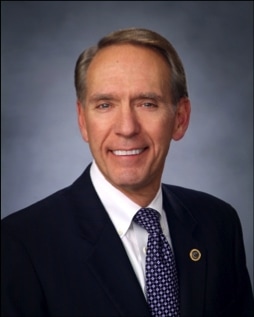Home » Posts tagged 'consciousness'
Tag Archives: consciousness
Happy Cultivation of Life’s Finest Feelings

The proper cultivation and refinement of feeling is necessary for the philosophic path, but this must not be confused with mere emotionalism. The former lifts him to higher and higher levels while the latter keeps him pinned down to egoism. The former gives him the right kind of inner experience, but the latter often deceives him. It is right to rule the passions and lower emotions by reasoned thinking, but reason itself must be companioned by the higher and nobler emotions or it will be unbalanced. If we would get him to act rights, as man’s impulses to action come mainly from his feelings, hence it is necessary to re-educate his feelings. There are three kinds of feelings. The lowest is passional. The highest is intuitional. Between them lies the emotional. It is not emotion that philosophy asks us to triumph over but the lower emotions. On the contrary, it asks us to cherish and cultivate the higher ones. It is not feeling that is to be ruled sternly by reason but the blind animal instincts and ignorant human self-seeking. When feeling is purified and disciplined, exalted and ennobled, depersonalized and instructed, it becomes the genuine expression of philosophical living. The heart must also acknowledge the truth of these sacred tenets, for then only can the will apply it in common everyday life. #RandolphHarris 1 of 20

Those who think the philosophic life is one of dark negation and dull privation, of sour life-denial and emotional refrigeration, are much mistaken. Rather it is the happy cultivation of Life’s finest feelings. The hardest thing in the emotional life of the aspirant is to tear himself away from his own past. Yet in his capacity to do this lies his capacity to gain newer and fresher ideals, motives, habits, and powers. Through this effort, he may find new patterns for living and re-educate himself psychologically. However, it is not all his ideas which govern man’s life. Only those are decisive which are breathed and animated by his feelings, only they prompt him to action. Hence, a merely intellectual acceptance of these teachings, although good, does not suffice alone. The aspirant needs to rise above his emotional self, without rising above the capacity to feel, and to govern it by reason, will, and intuition. Sentimentality is a disease. The sooner the aspirant is cured of it, the quicker he will progress. The idea that perfectly harmonious human relations can be established between human beings still dominated by egoism is a delusional one. Even where it seems to have been established, the true situation has been covered by romantic myth. It is possible to attain a stoic impassivity where the man dies to disturbing or disquieting emotions and lives only in his finer ones, where the approbation of others will no longer excite him or the criticism by others hurt him, where the cravings and fears, the passions and griefs of ordinary and everyday human reactions are lacking. However, in their place he will be sensible to the noblest, the most refined feelings. #RandolphHarris 2 of 20

The “heart” is the central abode of human feeling, the symbolic reminder that the “head” or cold, dry intellect is not enough to touch the reality of Spirit. There is one relationship which takes precedence over all others. It is the relationship with the Overself. A wrong relationship with the Overself must inevitably lead to a wrong relationship with men. We are not called upon to renounce our human affections, our Earthly ties, as the ascetics demand, but we are called upon to liberate our love from its egoism. He is indeed free who is no longer liable to be tossed about by emotional storms, whose mind has become so steadied in the impersonal Truth that his personal feelings shape themselves in accord with it. If, and, when we can reconcile our feelings with the hard, sharp truths of philosophy, we shall then find the secret of peace. If binding natural laws were conceived to govern economic behaviour, it would be futile to urge employers to obey the promptings of heir Christian conscience and deal more generously with heir men. Expressing a desire for the growth of trade unions to balance large industrial combinations, Washington Gladden hoped that arbitration would supersede strife as the means of settlement. The principle of competition, the survival of the fittest, is the law of plants and brutes and brutish men, but it is not the highest law of civilized society. The higher principle of goodwill, of mutual help, begins to operate in the social order, and the struggle for existence disappears with the progress of the race. #RandolphHarris 3 of 20

To assume placidly that competition is the law of life and development is the fatal mistake of the social and economic sciences is the most common counterbalance to the competitive principle, in the minds of Christian leaders and the principle of Christian ethics and the dicta of the Christian conscience. The Sermon on the Mount is the science of society. However, as we welcome in the natural process of fruition for our belief in the limitations of competition as a rule of human life, we find a foundation in the natural process of evolution. As the social gospel developed, it became increasingly cordial to municipal socialism or public regulation of basic industries; this could be seen in the writings of many who had the conventional objections to socialism. To the growing solidaristic trend in American thought the social gospel contributed heavily, for its lectures were heard by thousands, its books read by hundreds of thousands, and incalculable numbers joined its organization or attended its earnest conferences. A current of criticism frequently neglected and underrated by historians of American social literature, it supplied several religious bodies with a lasting reform orientation, and paved the way for all socially-minded Protestant movement of a later day. Not the least of its accomplishments was to break ground for the Progressive era. #RandolphHarris 4 of 20

Returning now from the problems of politics and economics to those of culture, we find that the change must be a similar one: from passive consumer culture to active, participant culture. This is not the place to go into details, but most readers will understand the difference between, for example, spectator art (like spectator sports) and active art, expressed in little theater groups, dancing, music, reading, and other forms. The very same question which exists regarding spectator art versus active art applies to the sphere of teaching. Our educational system, whose façade is so impressive according to the number of students who go to college, is unimpressive in quality. Education has deteriorated to a tool for social advancement or, at best, into the use of knowledge for the practical application to the “food gathering” sector of human life. Even our teaching in liberal arts—while not done in the authoritarian style of the French system—is dispensed in an alienated and cerebral form. No wonder that the best minds of our college students are literally “fed up” because they are fed, not stimulated. They are dissatisfied with the intellectual fare they get in most—although fortunately not in all—instances, and in this mood, tend to discard all traditional writings, values, and ideas. It is futile simply to complain about this fact. #RandolphHarris 5 of 20

One must change its conditions, and this change can only if the split between emotional experience and thought is replaced by a new unity of heart and mind. This is not done by the method of reading the hundred great books—which is conventional and unimaginative. It can only be accomplished if the teachers themselves cease being bureaucrats hiding their own lack of aliveness behind their role of bureaucratic dispensers of knowledge; if they become—in a word, by Tolstoy—“the codisciples of their students.” If the student does not become aware of the relevance of problems of philosophy, psychology, sociology, history, and anthropology to his own personal life and the life of his society, only the least gifted ones will pay attention to their courses. The result is that the apparent richness of our educational endeavour becomes an empty front which conceals a deep lack of response to the best cultural achievements of civilized history. The demands of students all over the World for greater participation in the administration of the universities and formulation of the curricula are only the more superficial symptoms of the demand for a different kind of education. If the educational bureaucracy does not understand this message, it will lose the respect which it receives from students and eventually that from the rest of the population. #RandolphHarris 6 of 20

On the other hand, if it becomes “vulnerable,” open and responsive to the interests of the students, it will sense the satisfaction and joy which meaningful activity carries with it as its reward. Marx expressed the nature of the nonbureaucratic influence over people succinctly in this way: “Let us assume man to be man, and his relationship to the World to be a human one. Then love can only be exchanged for love, trust for trust, etcetera. This humanism of education is, of course, not only that of higher education, but it starts with kindergarten and primary school. That this method can be applied even in the alphabetization of poor peasants and slum dwellers has been shown in the very successful methods of alphabetization devised and applied by Professor P. Freire in Brazil and now in Chile. I urge you not to get stuck in the consideration of the merits of the detailed proposals. American democracy must be strengthened and revitalized or it will wither away. It cannot remain static. While Marx already used the term “repression (Verdraengung) of the ordinary natural desires” in the German Ideology, Rosa Luxemburg, one of the most brilliant Marxists in the pre-1914 period, expressed the Marxist theory of the determining effect of historical process on man in straight psychoanalytic terminology. “The unconscious,” she wrote, “comes before the conscious. The logic of the historic process comes before the subjective logic of the human beings who participate in the historic process.” #RandolphHarris 7 of 20

This formulation expression the Marxian thought in full clarity. Man’s conscious, that is, his “subjective process,” is determined by “the logic of the historic process,” which R. Luxemburg equates with the “unconscious.” At this point, the Freudian and the Marxian “unconscious” may seem not to denote more than a common word. Only if we pursue Marx’s ideas on this problem further shall we discover that there is more common ground in their respective theories, even though they are by no means identical. Marx has given a good deal of thought to the role of consciousness in the life of the individual in a passage which precedes the one just quoted where he uses the word “repression.” He speaks about the fact that it is nonsense if one believes “that one could satisfy one passion, separate it from all the others, without satisfying oneself, the whole living individual. If this passion assumes an abstract, separate character, hence if the satisfaction of the individual occurs as the satisfaction of a single passions…the reason is not to be found in consciousness, but in being; not in thinking, but in living; it is to be found in the empirical development and self-expression of the individual, which, in turn, depends on the conditions of the World in which he lives. (die wiederum von der Weltverhaltnissen abhangt.)” #RandolphHarris 8 of 20

In this passage, Marx establishes the polarity between thinking and living which is parallel to that between consciousness and being. The social constellation of which he spoke before molds, so he says here, the being of the individual and thus, indirectly, his thinking. (The passage also is interesting because Marx develops here a most significant idea on a problem of psychopathology. If man satisfies only one aliened passion, he, the total man, remains unsatisfied; he is, as we would say today, neurotic, precisely because he has become the slave of the one alienated passion and has lost the experience of himself as a total and alive person.) Marx, like Dr. Freud, believed that man’s consciousness is mostly “false consciousness.” Man believes that his thoughts are authentic and the product of his thinking activity whole they are determined by the objective forces which work behind his back; in Dr. Freud’s theory these objective forces represent physiological and biological needs, in Marx’s theory they represent the social and economic historical forces which determine the being and thus indirectly the consciousness of the individual. Let us think of an example: The industrial method of production as it has developed in the last decades is based on the existence of large, centralized enterprises which are controlled by a managerial elite, and in which hundreds of thousands of workers and clerks work together, smoothly and without friction. #RandolphHarris 9 of 20

This bureaucratic industrial system shapes the character of the bureaucrats as well as that of the workers. It also shapes their thoughts. The bureaucrat is conservative and adverse to taking risks. His main desire is to advance, and he can best do so by avoiding risky decisions and by allowing himself to be led by an interest in the proper functioning of the organization as his guiding principle. The workers and clerks, on their side, tend to feel satisfied in being part of the Organization provided their material and psychological rewards are sufficient to justify this. Their own trade union organizations resemble in many ways that of their industry: large-scale organizations, bureaucratic and well-paid leadership, little active participation of the individual member. The development of large-scale centralized government and armed services, both of which follow the same principles which guide the industrial corporations. It is an ironical fact that those conservatives who are opposed to big government (or at least pretend to be) are usually not opposed to bib business or to big military establishments. This type of social organization leads to the formation of elites, the business, government, and military elites and, to a degree, to the trade union elites. This business, government, and military elites are closely interwoven in personnel, in attitudes, and in ways of thinking. #RandolphHarris 10 of 20

Despite the political and social differences between the “capitalist” countries and the “communist” Soviet Union, the way of feeling and thinking among their respective elites is similar, precisely because the basic mode of production is similar. The power elites are the product of a specific way of production and social organization and, hence, that their existence confirms the basic Marxian assumption, rather than contradicts it. Military and political determinism are equally valid assumptions. I believe these elites and their role can be best understood precisely from the standpoint of the Marxian model. The consciousness of the members of the elites is a product of their social existence. They consider their way of organization and the values that are implied in it as being in “the best interests of man,” they have a picture of human nature which makes this assumption plausible, they are hostile to any idea or system which questions or endangers their own system; if they feel that their organizations are threatened by it, they are against disarmament, they are suspicious and hostile of a system in which their class has been replaced by a different and new class of managers. Consciously, they honestly believe that they are motivated by patriotic concern for their country, duty, moral, and political principles, and so on. #RandolphHarris 11 of 20

The elites on both sides are equally caught in thought and ideas which follow from the nature of their conscious thoughts. Precisely because they are sincere, and because they are not aware of the real motivations behind their thoughts, it is difficult for them to change their minds. These people are not driven by an overwhelming greed for power, money, or prestige. To be sure, such motives exist too; but the people in whom this is the all-consuming motive are the exception rather than the rule. Personally the members of all the elites would be just as willing to make sacrifices and to renounce certain advantages as anybody else. The motivating factor is that their social function forms their consciousness, and hence their conviction that they are right, that their aims are justified and, in fact, beyond doubt. This explains also another and very puzzling phenomenon. We see that the elites of two great blocs are on a collision course and that there are great difficulties in coming to an arrangement which will secure peace. There is no doubt that nuclear war would man the death of most members of the elite, of most their families, and the destruction of most of their organizations. If they were driven mainly by lust for money and power, how could one understand that this greed would not yield to the fear of death, except in the case of exceptionally neurotic individuals? The point lies precisely in the difficulty to change their viewpoint. Because to them, theirs is the rational, decent, honourable way of thinking—and if the nuclear holocaust will destroy everybody—it cannot be helped since there is no other course of action besides that of “reason,” “decency,” and “honour.” #RandolphHarris 12 of 20

An academic course has definite boundaries: even if I learn everything within them, I cannot go beyond them, and when I have completed the course I feel that I “know.” When I am studying on my own, there are no such boundaries. I range wherever my interests take me, into the disapproved as well as the approved, instead of being confined to texts and other reading selected for me by someone else. In this way, I gain a perspective that makes me a more reasonable person, more in accord with reality. I become aware of many divergent opinions and my mind is more flexible as I find my own continuing way through them. The continuing happens because this is not a course, with the end arbitrarily decided by someone else. There is no end. My awareness of this changes my behaviour. Relatedness (otherwise known as “a broad liberal background”) comes about through one field moving me into another, not through certain things being put together and related for me. Within myself, this relatedness is vaster and more sweeping than anything that can be put in books or taught to me by someone else. The space within me is prodigious. A person can look into himself and discover that—and discover that this space shrinks when I have taken in too much without time to digest it. Then I become like the Navajos who say that “there is no more room in the head.” #RandolphHarris 13 of 20

The process of free association, of frank and unreserved self-expression, is the starting point and continuous basis of all analytic work-self-analysis as well as professional analysis—but it is not at all easy of achievement. It might be thought that this process is easier when working alone, for then there is no one who may appear to misunderstand, criticize, intrude, or retaliate; besides, it is not so humiliating to express to oneself those things of which one may be ashamed. To some extent this is true, although it is also true that an outsider, by the very fact of his listening, provides stimulation and encouragement. However, there is no doubt whatever that whether one is working alone or with an analyst the greatest obstacles to free expression are always within oneself. One is so anxious to ignore certain factors, and to maintain one’s image of oneself, that alone or not alone one can hope only to approximate the ideal of free associations. If he skips or obliterates any thought or feeling that arises, in view of these difficulties, the person who is working alone should remind himself from time to time that he acts against his true self-interest. Also, he should remember that the responsibility is entirely his own: there is only himself to guess a missing link or inquire about a gap left open. #RandolphHarris 14 of 20

This conscientiousness is particularly important regarding the expression of feelings. Here are two precepts that should be remembered. One is that the person should try to express what he really feels and not what he is supposed to feels and not what he is supposed to feel according to tradition or his own standards. He should at least be aware that there may be a wide and significant chasm between genuine feelings and feelings artificially adopted, and should sometimes ask himself—not while associating, but afterward—what he really feels about the matter. The other rule is that he should give as free range to his feelings as he possibly can. This, too, is more easily said than done. It may appear ridiculous to feel deeply hurt at a seemingly trivial offense. It may be bewildering and distasteful to mistrust or hate somebody he is close to. He may be willing to admit a ripple of irritation, but find it frightening to let himself feel the rage that is actually there. He must remember, however, that as far outside consequences are concerned no situation is less dangerous than analysis for a true expression of feelings. In analysis only the inner consequences matters, and this is to recognize the full intensity of a feeling. This is important because in psychological matters, too, we cannot hang anybody whom we have not first caught. #RandolphHarris 15 of 20

Of course, no one can forcibly bring forth feelings that are repressed. All anyone can do is not to check those that are within reach. With all the good will in the World, Clare, at the beginning of her analysis, could not have felt or expressed more resentment toward Peter than she did. However, as her analysis progressed, she gradually became more capable of appreciating the existing intensity of her feelings. From one point of view the whole development she went through could be described as a growing freedom to feel what she really felt. More desirable, from the standpoint of growth toward maturity, is the quest for independent security. This entails learning a new skill to gratify the need or to solve the problem by oneself. We must recognize that no human being can face life without help and affection from other people. It is important to emphasize independent security as a goal, to guide the efforts of parents and teachers as they stive to influence a child’s growth in wholesome ways. There is a distinction between immature dependent security, which is shown by persons who retain infantile patterns of dependency upon parents, or parent substitutes and authority figures, throughout life. Mature dependent security is shown in relationships of mutual love, where each person relies upon the other to provide for those needs that can never be gratified in solitude or without help, such as compassion and satisfying companionship. #RandolphHarris 16 of 20

These patterns of independent security, mature and immature dependent security, and the false security based on defense mechanisms are manifested in the major realms of life. These realms include vocational life, one’s avocations or leisure pursuits, one’s relationships with other people inside and outside the family, and one’s philosophy of life. Thus, a person might display independent security in connection with work, mature dependent security in relationships with members of the family, immature dependent security in the use of leisure time, and insecurity regarding religion or philosophy of life. Independent security means the state of consciousness which accompanies a wiliness to accept the consequences of one’s own decisions and actions. [It] can be attained in only one way—by the acquisition of skill through learning. Whenever an individual is presented with a situation for which he is inadequately prepared…he must make one of two choices—he must either retreat or attack…The individual must, if he is to attack, emerge from the state of dependent security and accept the state of insecurity. This attack will, of course, result in learning…The individual learns that satisfaction results from overcoming the apprehension and anxiety experienced when insecure, and that he may thus reach a state of independent security through learning. #RandolphHarris 17 of 20

The more people rely on machinery, electronic devices, and other apparatus, the more dependent they become on that very machinery. Reliance on media, “the extensions of man,” robs people of the very powers that are embodies in the gadgets. Periodic excursions to the wilderness, with training in survival skills, are a wholesome corrective to the skill-depleting way of life that is the lot of most people who live in cities. If he seeks the truth, the disciple must have no room for false sentimentality. Consequently, he will not apply the phrase “a broke heart” to himself at any time, for he knows that what it really means is a broken ego, a served attachment to some external thing which must be given up if the way is to be cleared for the coming of Grace. It is only when he is unwilling or unable to do this for himself that destiny steps in, taking him at his word in his search for truth and reality, and breaks the attachments for him. If he accepts the emotional suffering which follows and does not reject it, he is able to pass into a region of greater freedom, and of progress to a higher level. His heart is not broken arbitrarily or capriciously, but only there where it most needs to be broken—where passion desire, and attachment bind him the most strongly to illusion and error. Only after long experience and severe reflection will a man awaken to the truth that the beauty that attracts him and the ecstasy which he seeks can be found free of defects and transiency only in the Soul within. #RandolphHarris 18 of 20

Fire safety is an important part of the workplace and home, to protect against the destruction and death caused by fires. “We had a rookie school, you’re supposed to have all your hours certified by the state, but I was already out in the field. Our training chief waited until he had enough rookies to form a class. Then we would go to rookie school for eight hours, from eight to five, and after that, if you were on a shift, you went back to your station and worked the rest of your shift. We all got a lot of overtime, and that didn’t bother us. As part of the class, we were driving through downtown in a rescue vehicle with sliding panels like a bread truck. One of the guys whistled at a girl, and the chief bawled us out, my first lesson in fire department discipline. We were also given the job of testing all the hoses in the whole fire department, so you can imagine the water fights we got into. The department’s hiring procedures were good as far as the written and physical tests were concerned, but the oral interview wasn’t that much. There are people in our department who shouldn’t be there, shouldn’t have gotten past the oral interview. One of the toughest fires I ever had was one of the first. I was on the job for maybe a month, and I was still looking for my initiation to come. Then less than two blocks away from our station there was a gas leak under a house, and it exploded. #RandolphHarris 19 of 20

“A man was sitting on the commode in his bathroom, and he lit a match to light the gas heater there. The explosion blew out three walls of the house, and part of the roof collapsed. The guy got burns on his rear end, legs and feet, but the mother and baby in another room just had some plasterboard fall on them. We heard the bang, and we went. My job initially was to do the pumping, but we were on a replacement engine, and it had a different mechanism for charging the line. I didn’t know where it was. My captain was standing out there with no water, and he had to run back and turn the knob. So then we went ahead and got the fire out, except for a fire under the house. Fireman had cut a hole in the floor, eight by twenty inches, and told me to go under there. I told him, ‘You’re crazy. I’m not going under there. This place is ready to fall.’ I thought he was kidding with me. When I found out he wasn’t, I ended up underneath the house, lying on my back in water and mud, and trying to spray water on the fire. When I came out from under there, of course, I was all messed up. I got ridiculed by some of the men and got a bad rep with the captain for not going straight in. Anyhow, it was really something else.” Please help save lives and property by making a donation to the Sacramento Fire Department. Also, teach your children to love America, love God and Jesus Christ, to respect their elders and law and order. With firmness in the right as God gives us to see the right, let us strive on to finish the work we are in, to do all which may achieve and cherish a just and lasting peace among ourselves and with all nations. I pledge allegiance to the flag of the United States of America and to the Republic for which it stands, one nation, under God, with liberty and justice for all. #RandolphHarris 20 of 20

Lincoln, CA | from the low $600s
Now Selling!

Your new home at Cresleigh Havenwood offers exceptional luxury living.
Open-concept design, soaking tubs & more
Owned solar & Smart Home systems included
Some of the lowest Mello-Roos in the area
Elevate your living experience and see why Havenwood is the perfect place to call home. https://havenwood.cresleigh.com/

The Strongest are the Best

Whatever may be said against the principle of “natural selection” in other departments, there is no doubt of its predominance in early human history. The strongest killed out the weakest as they could. Since any form of political organization was superior to chaos, an aggregation of families having political leadership and some legal custom would rapidly conquer those that did not. The caliber of early political organization was less important than the fact that it was there at all; its function was to create a “cake of custom” which would bind men together, holding them, to be sure, in whatever place in the social order birth had given them—form organization originate in a regime of status and only long afterward evolves into a regime of contract. The second step, after organization, is the moulding of national character. This came about through the unconscious imitation of a chance “variation” displayed by one or two outstanding individuals. The national character is simply the naturally selected parish character, just as the national speech is the successful parish dialect. Progress, habitually thought of as a normal fact in human society, is a rare occurrence among peoples: the ancients had no such conception, nor do the Asians; and it is hard for some to become enlightened to the ways of the established World. The phenomenon occurs only in a few nations of European origin. #RandolphHarris 1 of 18

Some nations progress while others stagnate, because under all circumstances the strongest prevail over others; and the strongest are, in certain marked peculiarities, the best. Within each nation the most appealing character, usually the best, prevails; and in the now dominant western part of the World these competitions between nations and character types have been intensified by “intrinsic forces.” Of the existence of progress in military art there can be no doubt, nor of its corollary, that the most advanced will destroy the weaker, that the more company will eliminate the scattered, and that the more civilized are the more company. An advance in civilization is thus a military advantage. Backward civilizations, being more rigid in the structure of their law and custom, kill out varieties at birth, but progress depends upon the emergence of varieties. Progress is only possible in those happy cases where the force of legality has gone far enough to bind the nation together, but not far enough to kill out all varieties and destroy nature’s perpetual tendency to change. Early societies were in a grave dilemma: they needed custom to survive, but unless it was sufficiently flexible to admit variations they were frozen in their ancient mould. Modern societies, living in an age of discussion rather than rigid custom, have found a means of reconciling order with progress. #RandolphHarris 2 of 18

Darwin’s task of finding natural roots for man’s moral feelings and for the sympathy that underlies persistent social cooperation was taken up by John Fiske in his Outlines of Cosmic Philosophy (1874) and The Meaning of Infancy (1883). After reading Alfred Wallace’s account of his observations in the Malay Archipelago, Fiske had been struck by the thought that one thing that distinguishes humans from other mammals is the very long duration of their infancy. In general, there is a correlation between the complexity of a species’ potential behaviour and the proportion of its behaviour that is acquired by learning after birth. The human infant acquires the smallest proportion of its ultimate capacities during gestation; it is born less developed than the young of other species, and must undergo a long plastic period in which it learns the ways of its race. What makes the human species progressive, Fiske reason, is the fact that the infant does not come into the World with his capacities “all cut and dried,” but on the contrary must early slowly and is therefore able to learn an infinitely wider range of behaviour. The necessity of seeing infants through this long period prolongs the years of maternal affection and care and tends to keep father, mother, and child together—in short, to found the stable family and ultimately the clan organization, the first step toward civil society. From being merely gregarious, man become social. #RandolphHarris 3 of 18

Once the clan is organized, natural selection intervenes to maintain it; for those clans in which the primeval selfish instincts were most effectively subordinated to the needs of the group would prevail in the struggle for life. In this way the first germs of altruism and morality, manifest in the mother’s care of the infant, become generalized into wider and wider social bonds until they form sympathies broad enough to support the communal life of civilized man as he is not known. The moral sense has its foundation in the primitive biological unit, the family, and the social cooperation and solidarity of men is nothing if not natural. Fiske’s philosophy attempted to give the higher ethical impulses a direct root in the evolutionary process. A somewhat different—and, to most of his contemporaries, a less satisfactory—note of moral reassurance was struck by T.H. Huxley in his famous Romanes Lecture on “Evolution and Ethics” (1893). Unlike Fiske, Huxley accepted at its value the Hobbesian interpretation of Darwinism and acknowledged that “men in society are undoubtedly subject to the cosmic process,” which includes, of course, the struggle for existence and the elimination of the unfit. However, he flatly rejected the common practice of identifying the “fittest” with the “best,” pointing out that under certain cosmic conditions the only “fit” organisms would prove to be low ones. Man and nature make altogether different judgments of value. The ethical process, or the production of what man recognizes as truly the “best,” is in opposition to the cosmic processes. “Social progress means a checking of the cosmic process at every step.” #RandolphHarris 4 of 18

Active participation in the affairs of the country as a whole and of states and communities, as well as of large enterprises, requires the formation of interpersonal groups, within which the process of information exchange, debate, and decision-making, respectively, let us look at the characteristics such interpersonal groups will have. The first is that the number of participating people must be restricted in such a way that the discussion remains direct and does not allow the rhetoric or the manipulating influences of demagogues to become effective. If people meet regularly and know each other, they begin to feel who they can trust and whom they cannot, who is constructive and who is not, and in the process of their own participation, their own sense of responsibility and self-confidence grows. Second, objective and relevant information which is the basis for everyone’s having an approximately clear and accurate picture of the basis issues must be given to each group. The problem of adequate information presents many difficulties which forces us into some digression. Are the issues with which we deal in foreign and domestic policy or in the management of a corporation not so intricate and specialized that only the highly trained specialist can understand them? If that were so, we would have to admit that the democratic process in the traditional sense of the citizen’s participation in decision making is not any more feasible anymore; we would have to admit, furthermore, that the constitutional function of Congress is also outmoded. #RandolphHarris 5 of 18

The individual senator or representative certainly does not have the specialized knowledge which is assumed to be necessary. The president himself does seem to be dependent on the advice of a group of highly trained specialists, since he is not supposed to understand problems of such intricacy that they are outside the grasp of an informed and educated citizen. Briefly, if the assumption of the insurmountable complexity and difficulty of the data were correct, the democratic process would be an empty form, covering up government by technicians. The same would hold true in the process of management also. If top managers could not understand the highly complex technical problems they are called upon to decide, they would simple have to accept the decisions of their technical experts. The idea that data have become so difficult and complex that only highly specialized experts can tackle them is largely influenced by the fact that in the natural sciences such a degree of specialization has been reached that often only a few scientists are capable of fully understanding the work of a colleague in their own field. Fortunately, most data which are necessary for the decision-making in politics and management are not of the same order of difficulty or specialization. In fact, computerization reduces the difficulties because it can construct different models and show different outcomes according to the premises which are used in the programing. #RandolphHarris 6 of 18

In psychoanalytic terminology, one speaks of “the unconscious” as if it were a place inside the person, like the cellar of a house. This idea has been reinforced by Dr. Freud’s famous division of the personality into three parts: the Id, the Ego, and the super-ego. The Id represents the total of instinctual desires, and at the same time, since most of them are not permitted to arrive at the level of awareness, it can be identified with the “unconscious.” The Ego, representing man’s organized personality inasmuch as it observes reality and has the function of realistic appreciation, at least as far as survival is concerned, may be said to represent “consciousness.” The super-ego, the internalization of father’s (and society’s) commands and prohibitions, can be both conscious and unconscious, and hence does not lend itself to being identified with the unconscious or the conscious respectively. The topographical use of the unconscious has certainly been stimulated further by the general tendency in our time to think in terms of having. People say that they have insomnia, instead of being sleepless, or of having a problem of depression, rather than of being depressed; thus they have an Ultimate Driving Machine, a Victorian House, a child, as they have a problem, a feeling, a psychoanalyst—and an unconscious. #RandolphHarris 7 of 18

This is the reason why so many people today prefer to speak of the “subconscious”; it is till more clearly a region, rather than a function; while I can say I am unconscious of this or that, one could not say, “I am subconscious of it.” Jung’s use of the term “unconscious” has not helped to discourage the topographical usage of this concept. While for Dr. Freud the unconscious is the cellar full of vices, Jung’s unconscious is rather a cave filled with man’s original but forgotten treasures of wisdom (although not exclusively so), laid over by intellectualization. Another difficulty in the Freudian concept of the unconscious lies in the fact that it tends to identify a certain content, that instinctual strivings of the Id, with a certain state of awareness/unawareness, the unconscious, although Dr. Freud was careful to keep the concept of the unconscious separate from that of the Id. One must not lose sight of the fact that one is dealing here with two entirely distinct concepts; one deals here with certain instinctual impulses—another with a certain state of perception—unawareness or awareness. It so happens that the average person in our society is unaware of his desire to incorporate another human being, the psychotic is quite aware of that or other archaic desires, and so are most of us in our dreams. If we insist on the separation between the concept of archaic content and that of that of the state of awareness, or unconsciousness, it will clarify the understanding of “the” unconscious. #RandolphHarris 8 of 18

The term “the unconscious” is actually a mystification (even though one might use it for reasons of convenience, as I am guilty of doing in these pages). There is no such thing as the unconscious; there are only experiences of which we are aware, and others of which we are not aware, that is, of which we are unconscious. If I hate a man because I am afraid of him, and if I am aware of my hate but not of my fear, we may say that my hate is conscious and that my fear is unconscious; still, my fear does not lie in that mysterious place: “the” unconscious. In the beginning of my struggles, it was discouraging because I could not see the whole scene in the way that I express it now. I knew only that in this situation something was wrong and I had to correct that. This went on…and on…and on…seemingly with nothing ahead and with no end to the going. However, when I had gone through it enough times in different circumstances, then something that all the instances had in common began to show itself to me. I began to grasp in a total way the distinction between what others had put into me and what came out of myself. What had been a knotty tussle with one blindness after another, each one gone through in isolation from the others, began to be more flowing, with a more steady awareness of myself. Each time, something of myself came through, and something that was not myself got pushed away. There seems to be “no end to it” now, but the meaning of the words has changed. #RandolphHarris 9 of 18

What began as one battle after another, so wearying, so full of pain, has now become frequently enjoyable, like the joy that a child has in his growing and in his growing knowing. Sometimes it is not like that, but even then there is the knowing that I will come through, which certainly was not with me earlier, when I did not even know what was pushing its way through. It is often true now that “I do not know what I am going to do, but I am going to do it”—not only in work and things like that, but in my relations with other people, too. Now, we have been following Clare for some months now and many of us can relate to her. Most recently, she was concerned because she realized that she revolted against being alone. Her attitude about this problem had changed since her analysis of the “private religion.” She still felt the sting of being alone as keenly as before, but instead of succumbing to a helpless misery she had taken active steps to avoid solitude. She sought the company of others and enjoyed it. However, for about a week she was entirely obsessed by the idea that she must have a close friend. She felt like asking all the people she met, hairdresser, dressmaker, secretary, married friends, whether they did not know a man who would be suitable for her. Everybody who was married or who had a close friend, she regarded with the most intense envy. These thoughts assumed such proportions that it finally struck her that all of this was not only pathetic but definitely compulsive. #RandolphHarris 10 of 18

Only now was she able to see that her incapacity to be alone had greatly increased during the relationship with Peter, and had reached a climax after the separation. She realized, too, that she could endure solitude if it was of her own choosing. If it was not voluntary, it turned out painfully; then she felt disgraced, unwanted, excluded, ostracized. Thus, Clare realized that the problem was not a general incapacity to be alone, but a hypersensitivity to being alone. Linking this finding with her recognition that her self-evaluation was entirely determined by the evaluation of others, she understood that for her the mere absence of attention meant that she was thrown to the dogs. Each is so accustomed to obeying the lower ego that he finds his greatest comfort in continuing to do so, his greatest discomfort in disobeying it. Insofar as the quest seeks to bring about such a reversal of acts and attitudes, it becomes the most difficult enterprise of his whole life. Much new thinking and much new willing are required here. To accept our moral weakness, to overlook our failure to practice control of thoughts, and smugly to condone this unsatisfactory condition by calling it “natural,” is to show how powerful is the ego’s hold upon us. When a man comes to understand that he has no greater problem than the problem within, he comes to wisdom. The fact that he is becoming aware of this weakness more acutely and that he now sees egoism in himself where he formerly saw virtue, is a revelation made by his progress towards truth. #RandolphHarris 11 of 18

Many people suffer in adult life because they will not grow to adulthood, but insist upon struggling, sometimes with ingenious cunning and subterfuge, to get other people to cater to their needs and wishes the way they wanted their parents to serve them during infancy. The sneaky ways in which persons stive to exploit others have been documented. Thus, an adult might play the game of “wooden leg”—asking for deference from others, and seeking to justify failures, by calling attention to real or imagined disabilities: “If my stomach had not been hurting me all those years, I could have been more successful in my career.” The healthy personality consists of affirming one’s personal worth (“I am OK”), making reasonable demands upon others as befits an adult, and developing simple honesty in one’s dealings with others—living a relatively “game-free” existence. When a man comes to understand that he has no greater problem than the problem within, he comes to wisdom. The fact that he is becoming aware of his weakness more acutely and that he now sees egoism in himself where he formerly saw virtue, is a revelation made by his progress towards the truth. If he considered it aright and understands it as it really is, even temptation can nourish a man, make his will stronger, and his goal clearer. To make amends and fast, acts as purification after sin. #RandolphHarris 12 of 18

While a mental health counselor could undoubtedly make a valuable contribution in meeting our society’s mental health needs, he would not represent an optimal answer to the pressing demand for psychotherapy. The only thoroughly logical answer to that demand, in view of the utter impossibility of its being supplied by the present profession, is to create a new profession—to train properly selected persons to function specifically and exclusively as psychotherapists. What would constitute the ideal program of training for the psychotherapist? How should candidates for this training be selected? What personal characteristics should they manifest?? No one can say with certainty. And it would be a mistake to propose a highly restrictive set of specifications for this new profession, for this would constitute a premature attempt at authoritative rigidification of standards of a kind that is already proving embarrassing to the existing mental health professions. In thinking about selections and training of members for this new profession, it would be well to hold clearly in mind what their ultimate function and setting would be: they would work in hospitals, in mental health center, in child guidance clines, and in various social agencies where they would be under the general direction of and have continuous consultation with the senior professional staff in psychiatry, psychology, and social work; their primary and exclusive responsibility (except for special work entailed in research collaboration) would be to provide therapeutic conversation. #RandolphHarris 13 of 18

It is perhaps easier to specify those properties which would not be pertinent to their recruitment and training than to list those which would with certainty be applicable. A high level of academic performance would be less critical than substantial evidence of sound general intelligence. Modest intellectual endowment would perhaps prove a more positive qualification than extremely high intelligence. A balanced record of good scholastic achievement couple with extracurricular interests and reasonable number of effective social pursuits, including group participations, would probably make for a better candidate than would an outstanding academic record in the absence of non-scholarly interests and pursuits. Evidence of measure social interests and welfare motivations rather than of strong scientific interests and material motives would be pertinent. The young person who had revealed both interests and aptitudes for working effectively with others in personal settings would probably be a good bet. Thus, the person with a record of leadership in school activities, in camping, scouting, boys’ clubs or girls’ clubs, settlement house or other volunteer service activities would reveal some promise for effective response to training. #RandolphHarris 14 of 18

The Sacramento Fire Department is also trained to deal with mental health crisis. They get many calls where people are simply in distress and want a ride to the hospital. Unfortunately, those rides are extremely expensive, but the Sacramento Fire Department goes out of their way to keep the community safe and to preserve lives. If you have a firm grasp on your value system, mission, mandates, and vision of your department’s desired future, most departments realize that they have an ever-increasing workload, often without the correlating increase in resources (money in the budget and more personnel). “I really feel that is firefighting is what somebody really wants to do and they take the time to get the proper training, anybody can do it. You’ve gotta want to do it. I’ve had 240 hours of training, plus I went to the National Fire Academy. I’ve been there about ten times for different classes. I paid for everything myself, because the classes at the academy are taught by the best trained people in the field. I feel that the more knowledge I get, the safer my life is going to be. I know that bookwork can’t always help you in an actual fire situation. You have to have the experience. But hopefully my book learning, my training, plus now the experience I’ve had will get me out of a lot of bad situations—or prevent me from getting into one. It took anywhere from nine to twelve hours to get to the academy, depending on weather. I’d leave about five Friday morning and return about four in the morning on Sunday. #RandolphHarris 15 of 18

“I’ve taken public fire education, firefighter safety and survival, fire service management, initial company tactical operation, fire service suppression—that’s increasing personal effectiveness—and fire service supervision—that’s increasing team effectiveness. I’ve also taken a class over at Santa Clara University on investigating the juvenile arsonist. I’m a juvenile counselor. I love that. The kids really open their arms to me. It’s a wonderful feeling. These are children who have actually set fires, and the parents bring them to me. A lot of the parents say things like, ‘Scare them, and tell them never to do this again.’ But when I sit down with these kids and talk to them, they understand where I’m coming from. They know I’m a firefighter and that what they did was wrong, but they can trust me and talk to me about it. We’ve had a real good record with these kids not repeating fires. There was a mentally [disabled] boy who was playing with a lighter on his bed, and he set his mattress on fire. He was an eighteen-year-old who, when he was five, had fallen off a curb and gotten hit by a car. Some people wanted the police to talk to the boy and shake him up by telling him, ‘You’ll get arrested if you do this again.’ It was one of the police officers who asked me to handle this child, who had a six-year-old mentality. So I talked to him and had a real good session with him. #RandolphHarris 16 of 18

Nine months later I was involved with a club, taking disabled kids to the arena for one of the games. And this boy was one of the kids in the group. I went up to him and said, ‘Hi, (name was used but is being withheld for safety and privacy reasons), do you remember me?’ And he said, ‘Yes.’ Then he said, ‘I don’t play with lighters anymore.’ And I was just so tickled, to think that he would remember all those months later. And his mom was grateful for how I handled the situation. In your original training class, when you go into an actual burn for the first time, you get scared. You think, ‘What in the heck am I doing? Why am I doing this?’ But I had great confidence in my instructors. I trusted them completely, because they weren’t going to take a class of twenty people into a burning building and endanger their lives. The neatest part for me was having the breathing apparatus on. I’d never had anything over my face like that. That was exciting. I would challenge myself to see how little air I could use in the training session. I got to the point where I would just relax, and it doesn’t bother me to have the mask on. I’ve come a long way since then, but I think anybody would be foolish to say they weren’t scared. I still am, at times. At some fires I feel that that darn thing is a lot smarter than I am. It’s a constant game. It’s like I say, ‘Okay, who’s going to be smarter this time, you or me? Who’s going to win this fight?’ You have to treat a fire with respect. Because if you don’t, that’s when you get hurt.” #RandolphHarris 17 of 18

Today’s firefighters use a variety of technology, and they provide many services that go beyond putting fires out. They are actively working in our communities and counseling people in an effort to prevent fires. These programs are vitally important. You can help save lives by contributing to the Sacramento Fire Department. Also, I like how the firefighter that was interviewed actually talked to the youths and let them know that someone cares and why fires are dangerous. When people take their oaths serious, it can really prevent bad behaviour from becoming contagious. Parents, be sure to teach your children to love America and respect authority, obey the law and love God so we can also preserve the harmony in our community. I pledge allegiance to the flag of the United States of America, and to the Republic, for which it stands, one nation, under God, indivisible with liberty and justice for all. Justice, justice shalt thou pursue, that thou mayest live in the land which God giveth thee. Congress shall make no law respecting an establishment of religion, or prohibiting the free exercise thereof; or abridging the freedom of speech, or of the press; or the right of the people peaceably to assemble, and to petition the government for a redress of grievances. Proclaim liberty throughout the land, unto all the inhabitants thereof. Of all the dispositions and habits, which lead to political prosperity, religion and morality are indispensable supports….where is the security for property, for reputation, for life, if the sense of religion obligation deserts the oaths, which are the caution indulge the supposition that morality can be maintained without religion. #RandolphHarris 18 of 18

The Winchester Mystery House

Mrs. Winchester, about one hundred and thirty years ago, or more, became a little disquieted. However, not anything much remarkable yet, unless about a young servant girl who was pluckt by the thigh by a cold hand in her bed, borne through the air, and died within a few days after. Some weeks after this, Satan, in the form of a tall dark man conveyed thither and most often let the house by way of the chimney. One morning, the mother of the young servant girl was standing by the door, Mrs. Winchester asked her how she was doing. To whom she answered, with a sorrowful countenance, that though she was in tolerable health, yet things went very ill. Mrs. Winchester’s house being extremely haunted, especially above stairs, so that she was forced to keep in the lower rooms. She also said that one evening she walkt out about a mile from the mansion and there came riding towards her three persons upon three broom-staves, born up about a yard and half from the ground. Two of them she formerly knew which was a Witch and a Wizard. “Well,” Mrs. Winchester said, “if you will but stay a while, you may chance to see something more.” And, indeed, the servant had not stayed any considerable with her.

Please come and enjoy a delicious meal in Sarah’s Café, stroll along the paths of the beautiful Victorian gardens, and wonder through the miles of hallways in the World’s most mysterious mansion. For further information about tours, including group tours, weddings, school events, birthday party packages, facility rentals, and special events please visit the website: https://winchestermysteryhouse.com/

Please visit the online giftshop, and purchase a gift for friends and relatives as well as a special memento of The Winchester Mystery House. A variety of souvenirs and gifts are available to purchase. https://shopwinchestermysteryhouse.com/


